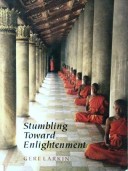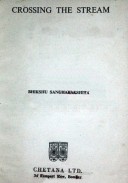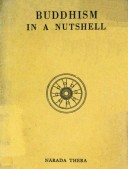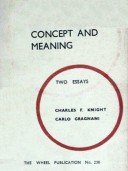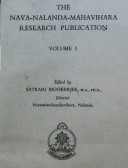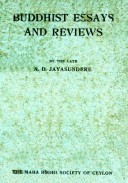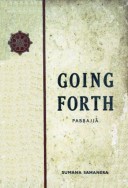Tìm Sách
Sách tiếng Anh-English >> Stumbling Toward Enlightenment
Thông tin tra cứu
- Tên sách : Stumbling Toward Enlightenment
- Tác giả : Geri Larkin
- Dịch giả :
- Ngôn ngữ : Anh
- Số trang : 227
- Nhà xuất bản : Celestial Arts, Berkeley Califonia
- Năm xuất bản : 1997
- Phân loại : Sách tiếng Anh-English
- MCB : 1210000003674
- OPAC :
- Tóm tắt :
FOREWORD
Each of us has a yearning for the divine. When we decide to do something about this yearning—such as going back to church, or finally starting to pay attention in church, or shifting our work so it better matches our deepest values, or even reading about spiritual topics— we have, whether we are fully conscious of it or not, embarked on a spiritual path.
When we enter this path, most of us believe that it will be a pretty straight road, not necessarily easy, but at least straight. For most of us, however, the reality is that spiritual growth is like learning to walk. We stand up, fall, stand up, fall, take a step, fall, take a couple of steps, fall, walk a little better, wobble a bit, fall, run, walk, and finally, eventually fly. Sometimes we slide backwards after every step forward. And sometimes we find ourselves head first in a bush by the roadside, blocked by a boulder in the middle of the path, stuck until we can figure our way through. It’s never a straight line.
Stumbling Toward Enlightenment is my promise to stand right beside you, wobbling right along, sharing the teachings that have helped us and so many others walk a little straighter, fly a little sooner. My anchor is The Dhammapada, perhaps the best known collection of the Buddha’s teachings. Made up of twenty-six chapters, The Dhammapada offers up the core themes of mindfulness and loving kindness in teachings that range from the implications of the choices we make to guidelines for tasting happiness in the midst of everyday dreariness, or what I like to call accessible Zen.
Building from the teachings of The Dhammapada, this book offers stories and guidance for people who are starting to explore their spirituality more deeply and want to taste Buddhism without feeling obligated to know its history and constructs. There are lessons related to the impact of the choices we make in our lives; the importance of being aware; the dangers of grasping at pleasures; and the components of real wisdom.
The style is painfully honest (for me anyway), earthy, and maybe even a bit scrappy. Real life stories, sprinkled with dharma wisdom from ancient Zen masters, illustrate the teachings. My goal is simple: to encourage each of you to enter your own spiritual forest, head held high, or to travel further into the one you have chosen, leaving fear behind.
This book grew out of requests for written copies of the dharma talks I gave at the Ann Arbor Zen Buddhist Temple and The Chicago Zen Buddhist Temple in 1995 and 1996. So regularly would people approach me after the talks and ask for a copy of my notes, which were at best Illegible, and at worst, utterly unrelated to what I had spoken about, that I finally decided to get them down on paper in a reasonably organized and, hopefully, useful way. Have fun with them.
Here are my thank-yous: To Alan Richter, who introduced me to Andrea Pedolsky, who introduced me to David Hinds and Veronica Randall at Celestial Arts. Full-bodied Bodhlsattvas, I say to Buddha who started this ball of doubt rolling in the first place, and to my mother who didn’t need to be convinced, after all, that I had fallen into the hands of a cult. The biggest thank-you of all goes to you, the reader, for your open admission of your spiritual side and the courage you have shown in considering that there might be more that you can do. There is.
CONTENTS
Foreword
One If I Can, You Can
Two First You Have to Row a Little Boat
Three More Tools for Your Spiritual Toolbox
Four Mind Games
Five A Buddhist Approach to Anger
Six On Becoming Wise
Seven About Teachers
Eight The Incredible Importance of Tiny Moments
Nine The Invaluable Lessons of Miserable Days
Ten Dealing with Rage
Eleven Preparing for Death
Twelve Egotism as a Life Handicap
Thirteen The World
Fourteen Clues to Progress
Fifteen The Art of Cultivating Sympathetic Joy
Sixteen A Sane Valentine’s Day Wish
Seventeen When All You Still Think About Is Sex
Eighteen Embracing Change
Nineteen The Way
Twenty Fear, Worry, and Shame
Twenty-one Tenacity
Twenty-two Relax, My Darling
Twenty-three Living Your Life as a True Master
Twenty-four On Community
 Facebook
Facebook
 Google
Google
 Google+
Google+
